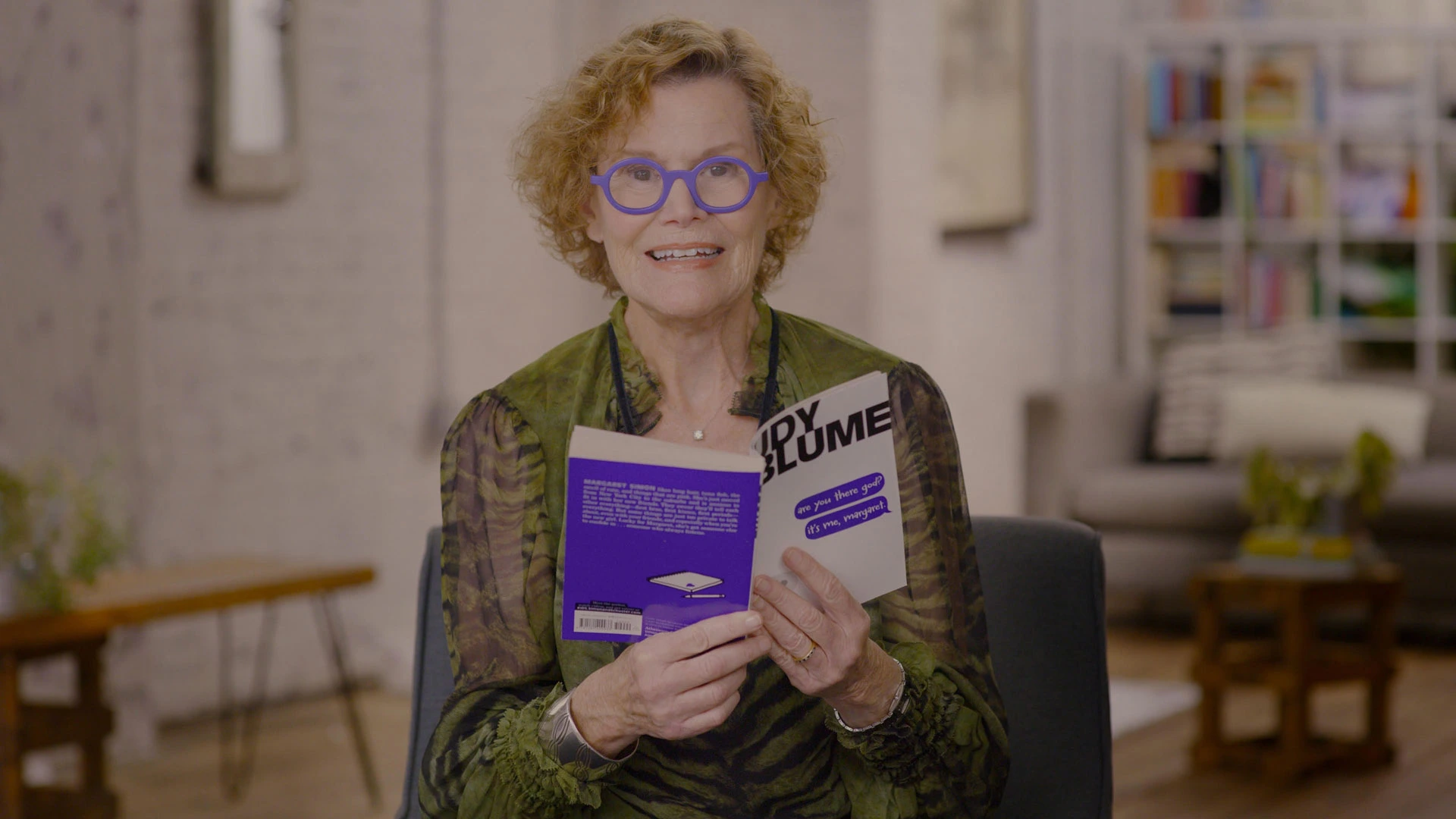What’s most astonishing about Judy Blume isn’t that her books keep selling 50 years after they burst onto the kids lit scene, but that they are no less potent than they were back then. With candid depictions of topics like menstruation, bullying and teen sex that is pleasurable rather than the fulcrum of a morality tale, Blume’s books still dominate summer camp cabins and school libraries daring enough not to ban them.
Deenie, a stunning 1973 novel about a girl whose scoliosis impinges on her mother’s dreams for her daughter’s modeling career, is the current favorite among the under-12 residents of this reviewer’s household. The same title, which also addresses masturbation with striking candor, aroused members of the far right. In a fabulous scene in Judy Blume Forever, Davina Pardo and Leah Wolchok’s documentary about the iconic writer, Blume is seen on the television show Crossfire sparring with conservative commentator Pat Buchanan in the early 1980s. The petite mother of two doesn’t lose her composure in the face of her critic’s prurient hang-ups. “Did you read the whole book or just the highlighted parts?” she asks in the warm tone of a cocktail party host offering hors d’oeuvres.
The film-makers lobbied Blume for several years before she agreed to participate in a movie about her life. What she finally consented to is a spirited and winsome documentary that tells the story of a woman who progressed as the world around her struggled to achieve similar levels of enlightenment. Even within the sometimes laughably liberal enclave of children’s books, few authors have established themselves as serious alternatives to Blume, whose some 20 books, including Forever and Are You There God It’s Me, Margaret, are free of condescension and spill over with an uncanny respect for the young people they’re meant for.
“I was a good girl with a bad girl lurking inside,” Blume tells the film-makers. Born to a middle-class Jewish family, she toed a conventional line, wearing sweater sets and attending Sweet Sixteen parties and marrying her college sweetheart. It was while raising her own family in New Jersey that she began to write, a habit that did not earn the admiration of her neighbors or even her husband. He took a patronizing view of her efforts and appreciated that it was less expensive than a shopping habit.
Interviews with Blume are interspersed with reflections from a bevy of contemporary admirers including the film-maker Lena Dunham, author Jacqueline Woodson and Gossip Girl writer Cecily von Ziegesar. Blume was a trailblazer and set the stage for their own work. Animated underpants and maxi pads accompany voiceovers here and there, but the most successful visuals are of pages from Blume’s correspondences with her readers – fans who wrote on unicorn and rainbow stationery and vouchsafed their darkest secrets to their favorite author. When one of her longstanding pen pals told Blume that her parents were in crisis and would not be making it to her college graduation, at Bryn Mawr, Blume showed up – for a girl she had never met in the flesh.
Other letters included in the film come from publishers who weren’t convinced that Blume was worth taking on. Lines like: “Your story lacked an intangible something,” and “We don’t feel it is quite convincing” pack an incredible sting, and help explain the “I’ll show ‘em” spirit that propelled Blume to stick with it. She finally got her break with a small publisher who gave her an advance of $350, which she used to buy an electric typewriter. For many years she led a double life, sitting out the consciousness-raising circles and bra burnings of her time but finding her own private way to buck societal conventions. “I could be fearless in my writing in a way I couldn’t be in my life,” Blume tells her interviewers. Her books have in common a fearlessness and plainspoken prose. Another hallmark is Blume’s ability to make a child feel heard, and perhaps suspect that the author is reading her most shameful thoughts. (It helps that she has total recall for everything that happened to her after third grade.)
Pardo and Wolchok’s film functions as something of an animated scrapbook, shading in the real-life material that a living icon spun into her bestsellers. Echoes of her father, who she calls “the nurturer” of her childhood household, are found in Deenie’s dad, the gas station owner who serves as his daughter’s confidant. Blume’s son was the basis for the Fudge series. Her decision to leave her first husband when she was 37 led to her divorce tale It’s Not the End of the World. Another marriage followed, though it ended quickly. Blume had sworn off love when she met George Cooper, the doting law professor with whom she lives in Key West and runs an independent bookstore.
The Judy Blume who appears at the outset of the film seems to have figured out the exact story she wants to tell. But a looseness and generosity of spirit soon emerge, and her participation begins to feel less pre-packaged. She laughs about her beef with book reviewers, and opens up about her mothering regrets. Blume doesn’t present as somebody who is remotely besotted with herself. After all, keeping it real is her superpower.
![]()
![]()


